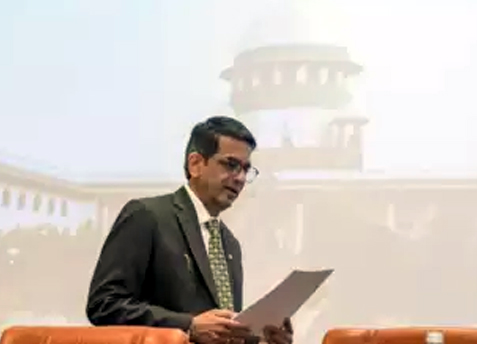NEW DELHI: Chief Justice of India (CJI) D Y Chandrachud on Saturday expressed his appreciation for the enactment of the new criminal justice laws, describing it as a “watershed moment for society”. He emphasized the importance of India undergoing a significant overhaul of its criminal justice system.
During a conference in New Delhi focused on ‘India’s Progressive Path in the Administration of Criminal Justice System’, he highlighted the necessity for citizens to adopt the new laws to ensure their success.
Follow the Daily Excelsior channel on WhatsApp
According to Chief Justice of India (CJI) Chandrachud, the newly enacted laws have ushered India’s legal framework on criminal justice into a new age.
He further mentioned the introduction of much-needed improvements aimed at safeguarding the interests of victims and ensuring efficient investigation and prosecution of offences.
“The enactment of these laws by Parliament is a clear indication that India is changing and on the move, and needs new legal instruments to deal with the current challenges,” said CJI.
The conference was organized by ministry of law & justice, “to generate awareness about these legislative enactments, particularly amongst the stakeholders and legal fraternity”. Union law minister Arjun Ram Meghwal, attorney general R Venkataramani, and solicitor general Tushar Mehta also attended the conference.
The newly enacted criminal laws, namely the Bharatiya Nyaya Sanhita, the Bharatiya Nagarik Suraksha Sanhita, and the Bharatiya Sakshya Act replace the earlier criminal laws namely, the Indian Penal Code 1860, the Code of Criminal Procedure, 1973 and the Indian Evidence Act, 1872.
The laws are set to completely overhaul the country’s criminal justice system starting from July 1.
However, the provision concerning cases of hit-and-run by vehicle drivers will not be implemented immediately.
The three laws received approval from Parliament on December 21 last year, and President Droupadi Murmu granted her assent on December 25. (Agencies)


